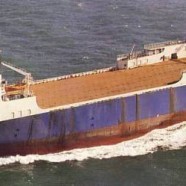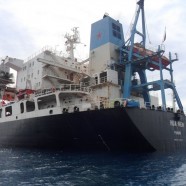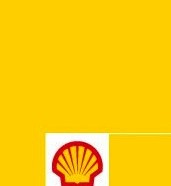Destruction of Syrian Chemical Weapons n°2
Neutralizing Syrian chemical weapons on board the Cape Ray, a cargo ship converted into an industrial platform, situated in international waters will make it possible to avoid national regulations.
This worldwide first will transform the high seas into a free zone, free from any democratic controls and environmental and social constraints. The OPCW and the United States state that 500 tonnes of Syrian’s priority substances will be treated at sea in a couple of weeks whereas the final destruction of America’s chemical weapons will not be finished before 2023. On land, the United States is hoping to treat 3,100 tonnes in 10 years. At sea, they are convinced that they can treat 500 tonnes within 4 weeks.
Destruction of Syrian Chemical Weapons
Update January 3, 2014 – 10:15 AM
Treatment of Syrian chemical substances onboard the American ship Cape Ray is a default solution. It follows Northern European countries’ refusal to directly dispose of the precursor chemical ammunition in specialized facilities (*). This operation on the high seas would install industrialization of the world’s oceans.
The end of the Probo Koala
The Hua Wen, ex-Probo Koala is going to be demolished in the coming weeks in China. From August 2006 on, the scattering in Abidjan of desulphurization waste containing mercaptan and hydrogen sulphide has provoked a panic and the paralysis of Ivory Coast business capital. 16 fatalities were officially reported; the victims had been exposed to the toxic emanations. The toxic and stinky waste which had been unloaded from the Probo Koala slop tanks had illegally left Amsterdam and Tallinn, two North European ports (1).
Oil in French Guiana: the applicants are getting impatient
Shell has already digged the first four drilling wells for exploring offshore French Guiana. These operations took place, one might say, by the “old system.” The authorization process had been initiated by Jospin’s government in 2001 and then extended by Fillon’s government in 2011. In the press release, “The go-fast Shell” on July 9, 2012, Robin des Bois denounced the granting conditions of such authorizations. The regional committee of marine fisheries and mariculture in French Guiana has requested that the operations be suspended.
Let’s go
Shell of French Guiana
Release # 3 – Volume 2
Go Fast!
1 – On May 29, 2001, Christian Pierret, Secretary of State for Industry in Lionel Jospin’s government has granted Planet Oil Limited a permission for offshore drilling in French Maritime Guiana.
2 – On July 2nd, 2007, the license originally assigned to Planet Oil Limited was extended and given to Hardman Petroleum France by Jean-Louis Borloo, Minister of Ecology in François Fillon’s government.
3 –The operation was framed by two prefectoral decrees on January and March 2011 respectively. Then, from March to November, 2011: the primary exploratory drilling was accomplished. A peculiar situation : the prefect of French Guiana issued two security measures for evacuation of drilling platform when Kourou Space Center launched its first satellite because of the fear of a possible fallout on the drilling region.
More transparency on the offshore and less light
Bonn
Plenary meeting – OSPAR Commission for the protection of the North-East Atlantic
So far from Guyana and yet so close, member states of the OSPAR Commission for the Protection of the North-East Atlantic in Bonn approached the offshore industry with Robin des Bois as their pilot fish. The area of competence of this international Commission extends from the arctic waters to Portugal.
Transparency
About 1,300 oil and gas offshore facilities are established in the OSPAR area, mainly in the North and Norwegian Seas. Pioneering in the field of ocean industrialization, this sector benefits from its geographical isolation. Robin des Bois proposed to the OSPAR member states to accurately map the oil rigs and label each of them with an identity voucher including key dates, water depth, drilling depth in the ocean floor, flags (certain drilling installations in the OSPAR zone are under Panama or Marshall Island flag), names of companies involved (owners, operators, managers, sub contractors…), accidents having occurred on site (fires, oil releases…) and main chronic emissions. This proposition was not greeted favorably by the UK delegation, neither was it by the International Oil and Gas Producers Association (OGP). Enforcing transparency is expensive whereas all the data is available on no free-of-charge databases, they say. These arguments were not convincing. France, Sweden, Spain, and Germany have supported Robin des Bois’s proposal. For once, the NGO will be invited to the next meeting of the offshore Experts Assessment Panel of OSPAR to itemize the project and its implementing means. Until now and for a long time, France had been represented on this panel by TOTAL. Has change finally occurred?
A Full tank of risks in Guyana, Normandy, and in the Arctic
Drilling in Guyana- Press release # 2
Shell is leading the dance in Guyana. The offshore is going to be subjected for over a year to the harmful effects and pollutions of 4 exploratory petroleum drillings and experimental pumping. The Guyanese coast and neighboring countries are not immune to drifts of accidental oil spills. The Scientific Committee of the International Whaling Commission has highlighted the diversity of large and small cetaceans off the coast of Guyana in 2011. Manatees, leatherback sea-turtles, and thousands of migrating birds that come from the Caribbean and Brazil to reproduce on the Grand Connétable Islands are threatened by the ultra-deep drilling thanks to the Shell’s supremacy, pressure from the Guyana elect, and the weaknesses of the French governments. The story began in May 2001, with the issuance from a prefect departmental Prefect order granting an exclusive permit for oil exploration also called the Guyana Maritime license. The energy transition made a detour by the prehistoric era and it is well known that the impact on the environment does not address, far from it, all the risks due to noise, light and atmospheric pollution.
Full tank of Risks off the Coast of Guyana
Shell, the black gold ogre loiters off the coast of Guyana. The drilling vessel Stena IceMax, just passed off the coast of Cap in South Africa and is making its way towards Guyana. The first of Shell’s four new exploratory oil drillings should begin June 19th on the other side of the South Atlantic. The dossier is still not complete; the decree from Guyana’s Prefect on the preliminary dispositions for work and the prevention of marine pollutions still has not been signed. There is cause for concern and to suspend the prefects signing.













